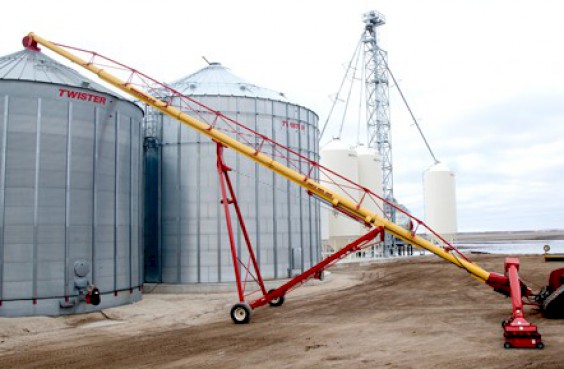Westfield Grain Augers for Harvest Time
Jul 01, 2019

Harvest time is just around the corner, and you’ll want to be prepared. When you have two combines working in the field and a semi to unload, you need a grain auger that’s efficient and easily maneuverable for labor-saving performance and dependability.
Co-op offers high-quality Westfield grain augers in a variety of sizes to fit your needs These augers qualify for cost-share reimbursement under the Tennessee Agricultural Enhancement Program.
Both straight or swing-away augers are available. In-stock sizes range from 31-73 feet in length and 8-10 inches in diameter, but Co-op also has access to sizes up to 125 feet long and 16 inches in diameter. These durable augers are manufactured in Canada, and a parts warehouse is located in Decatur, Ill. Every Westfield grain auger features powder coat pain to protect against rust.
When selecting an auger, there are seven key features you should look for:
For help with selecting a Westfield grain auger for your operation, visit with the professionals at your local Co-op.
Co-op offers high-quality Westfield grain augers in a variety of sizes to fit your needs These augers qualify for cost-share reimbursement under the Tennessee Agricultural Enhancement Program.
Both straight or swing-away augers are available. In-stock sizes range from 31-73 feet in length and 8-10 inches in diameter, but Co-op also has access to sizes up to 125 feet long and 16 inches in diameter. These durable augers are manufactured in Canada, and a parts warehouse is located in Decatur, Ill. Every Westfield grain auger features powder coat pain to protect against rust.
When selecting an auger, there are seven key features you should look for:
- Drive system. What type of drive system do you prefer? Choices include tractor PTO, electric motor, gas motor, and hydraulics
- Unloading. What kind of truck are you unloading? Do you require a swing-away hopper?
- Auger application. Will augers be used for unloading and loading trucks and bins, for loading trucks only, or solely for loading bins?
- Storage. Augers are made for a flat storage bin with door access, flat storage bin with unload, hopper bottom bin, and flat ground storage.
- Seed or pulse crops. Is the auger intended for seed or for crops that need gentler handling? A conveyer belt should be considered for the gentlest handling.
- Capacity. Do you have a preferred capacity? Capabilities range from low (0 to 3,000 bushels per hour) to high (6,000 to 9,000 bushels per hour). Make sure to match your auger capacity to your bin’s grain spreader.
- Length. A helpful tool to calculate auger length is Eave height of bin + ½ bin diameter x 1.4 = auger length.
For help with selecting a Westfield grain auger for your operation, visit with the professionals at your local Co-op.